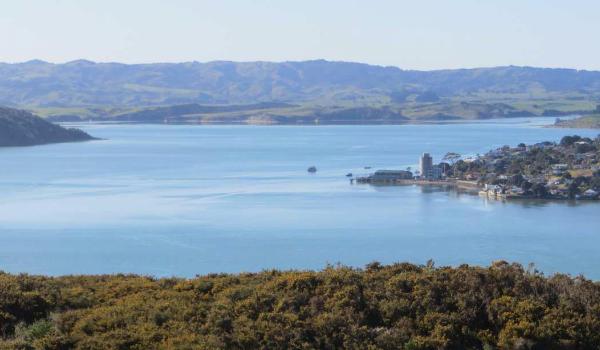Waikato Regional Council news
Landowners in the west coast harbour catchments are helping Waikato Regional Council develop harbour and catchment plans for Kāwhia, Aotea and Whāingaroa/Raglan.
The regional council has been holding workshops with rural landowners, iwi representatives, agencies and stakeholders to understand their concerns, aspirations and ideas for the harbours and their catchments. The plans will help the council to prioritise the work it does with landowners to improve the health of the catchments, waterways and harbours.
Residents and landowners can still have their say via an online survey at waikatoregion.govt.nz/westcoast-survey. To find out more about harbour and catchment management plans go to waikato.govt.nz/hcmp
“Our catchment management programme has grown year on year since the West Coast zone was established in 2010, and we have now more funding than ever for landowners to make environmental improvements on their properties,” says project manager Tracie Dean-Speirs.
Typically this work includes riparian planting and fencing, land retirement, erosion protection and river management.
“We’re getting great uptake by landowners who want to make improvements on their land, however we do find that demand can exceed the funds available. Therefore it’s important that we direct funding towards work that will make the most difference.”
The council this year secured $1.39 million from the Ministry for Primary Industries’ Hill Country Erosion Fund 2019-2023 for soil conservation work in the West Coast Zone, which includes the harbour catchments. It has also put in an application for funding from the Government’s One Billion Trees Programme to help landowners undertake native planting.
The west coast zone has the highest proportion of erosion-prone farmland in the Waikato region, and its rivers have high sediment loads. It also has the lowest population (3 per cent).
“These plans will help us get extra funding support, and communities can also use these plans to help get funding from other sources, too.”
Issues, concerns and trends identified at the workshops included declining numbers of shellfish in harbours, coastal erosion and inundation, impacts from increased urban development, sedimentation, an increase in pest plants and animals, and lack of funding available.
Fred Lichtwark said,
“We need communities to
help us do it, and we have
the resources to help
communities take action.”
Waikato Regional Councillor Fred Lichtwark, who is the chair of the council’s new Community Restoration Committee, says people want improved water quality, greater biodiversity and more green spaces around harbours and waterways.
Landowner groups are already forming in some parts of the Kāwhia harbour catchment.
Councillors Stu Kneebone and Andrew Macpherson, who attended the Kāwhia workshop, say its inspiring to see landowners wanting to work together to develop better environmental outcomes for their properties and the whole of the catchment.
“We’re really behind neighbours working with neighbours – that’s how we can make the biggest improvements to our waterways,” says Councillor Kneebone.
The regional council will hold public information days in Kāwhia and Raglan on the harbour and catchment management plans in the New Year.
